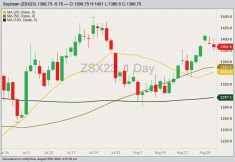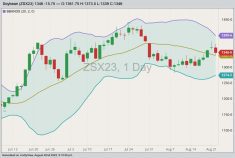Cairo | Reuters — Egypt will allow up to 0.05 per cent ergot, a common grains fungus, in wheat shipments beginning on Tuesday, confirming the end of a months-long standoff just before the country re-enters the international wheat market.
Reuters exclusively reported on July 4 that a ministerial decree would allow the world’s top wheat importer to apply the 0.05 per cent international standard to purchases, ending a zero-tolerance policy that has puzzled global trade.
The confirmation, in the form of decree number 1117/2016 issued in the state gazette on Monday, is set to take effect one day after publication, the document showed.
Read Also

Alberta Crop Report: Harvest reaches completion
Alberta’s harvest is virtually complete at 99.4 per cent finished, ahead of the five-year and 10-year averages at this time of the season.
Egyptian quarantine authorities’ refusal to permit wheat infected with even trace amounts of ergot — which can lead to hallucinations in large quantities but is considered harmless at minor levels — wreaked havoc in the market for six months.
Suppliers have said that guaranteeing zero ergot is impossible, leading many to raise their prices or sit out of Egyptian state tenders altogether.
The agriculture quarantine authority’s zero-tolerance policy was at odds with the more commonly accepted international standard of up to 0.05 per cent already endorsed by the supplies ministry and the General Authority for Supply Commodities (GASC).
State grain buyer GASC is expected to tap international markets for wheat this month following the conclusion of the country’s local wheat buying season last month.
— Reporting for Reuters by Eric Knecht and Maha El Dahan.
















